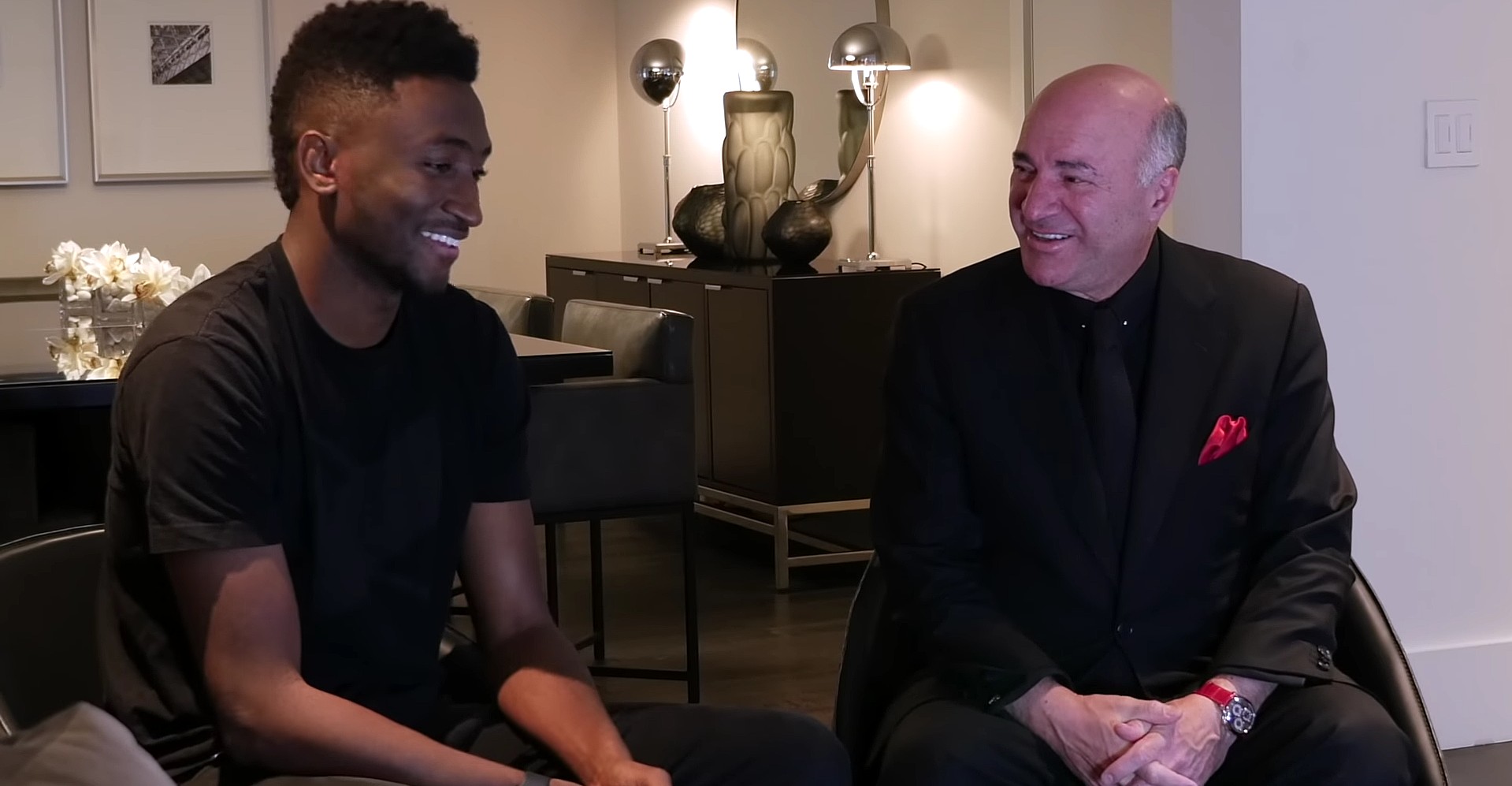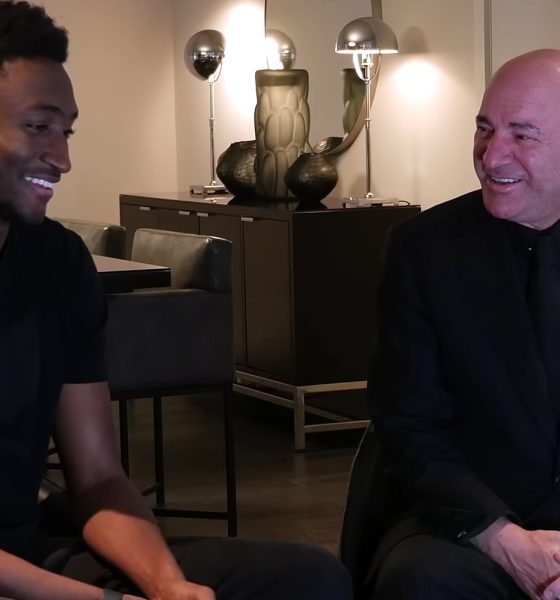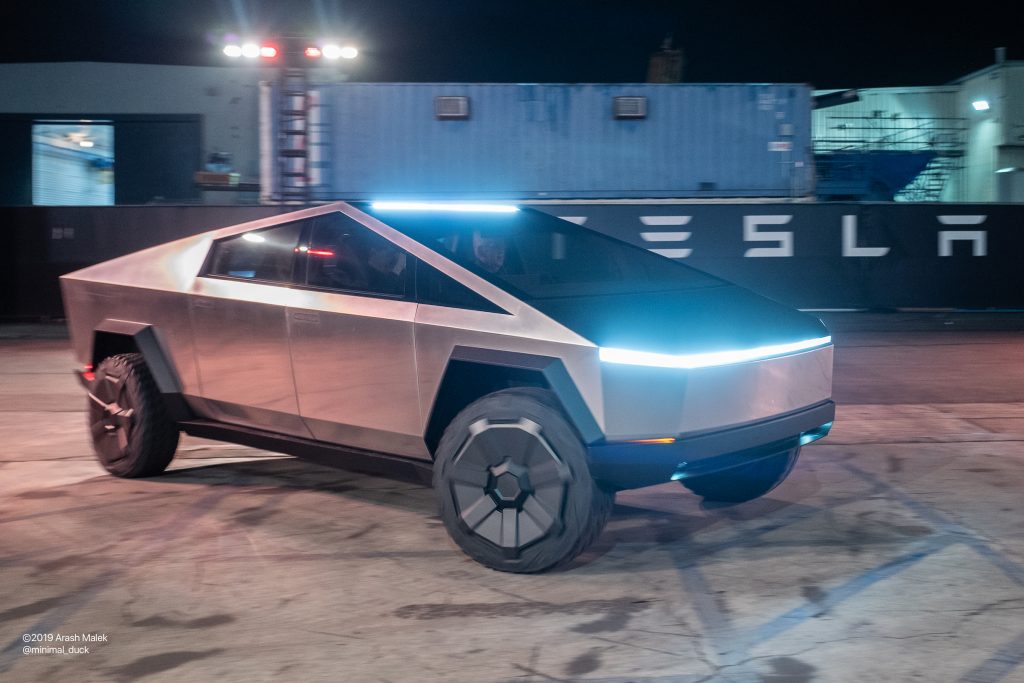

News
Tesla Cybertruck gets seal of approval from tough 'Shark Tank' judge Mr. Wonderful
The Tesla Cybertruck continues to grow on more and more people. Since its unveiling, auto experts and actual truck owners have come to defend the vehicle, dubbing the all-electric pickup as a bold move in function and form. The Cybertruck has indeed impressed its own fair share of Tesla critics, including, as it turned out, Shark Tank judge Kevin O’Leary, better known by his tongue-in-cheek nickname Mr. Wonderful.
Kevin O’Leary has not always been a fan of Tesla, particularly its stock, at one point even admitting that he hated TSLA. He has since changed his stance on the electric car maker, even investing in Tesla himself after seeing the capability of the company to attract the best and most driven talents available. Yet, despite this, O’Leary is still as sharp and critical as ever. In true Mr. Wonderful style, O’Leary is never one to hesitate when calling out something he deems as a failure.
One could recall a Shark Tank episode from 2016 involving aspiring entrepreneur Allison DeVane, whose idea for her business, Teaspressa, failed to get a positive response from any of the sharks. Shark Tank judge Lori Greiner was quick to console the contestant, saying “Don’t look at this as a failure.” O’Leary promptly countered, saying “Look at this as a failure.” His statement was met with much disdain from fellow Shark Tank judges and viewers alike, with fellow shark Mark Cuban telling O’Leary to “shut up.” Fans of the show also stated that it seemed all too easy for Mr. Wonderful to kick someone that was already down.

O’Leary has always been a direct and somewhat brash critic. In the case of the Tesla Cybertruck, Mr. Wonderful will likely be one of the first to say that the vehicle has no chance in the market. Yet, in a recent conversation with noted YouTube tech reviewer Marques Brownlee, O’Leary admitted that he actually placed a reservation for the upcoming all-electric pickup. He is even getting the tri-motor AWD variant so that he gets maximum range and power for long trips. Discussing his reservation, O’Leary stated that the Cybertruck is not really a pickup truck in the traditional sense of the word.
“It’s not a pickup truck. It’s some kind of other thing, but it’s grown on me. That Elon guy, he kind of steps ahead. He kind of reminds me of Steve Jobs in a way. I used to work for Steve in educational software and I’d always say to him ‘Steve, what about the research.’ He said ‘Screw the research.’ People don’t know what they want until I tell them.’ And I said, ‘You arrogant prick. How can you say that?’ And he was 100% right. That was it. He was not an easy guy to work for, I gotta tell you. And I’m trying to be nice,” O’Leary said.
O’Leary’s statements about market research are true. Tesla and Elon Musk did not do traditional market research for the Cybertruck, which is among the reasons why the vehicle in itself is so radical. Despite this, the vehicle is also a culmination of exchanges between Elon Musk and the online community, with both parties brainstorming features and capabilities that are most important in an all-electric pickup. As Mr. Wonderful said, people like the legendary Steve Jobs and Elon Musk are steps ahead. For visionaries such as these, market research may not be a very useful tool at all.
Watch Mr. Wonderful and MKBHD’s conversation in the video below.

Cybertruck
Tesla drops latest hint that new Cybertruck trim is selling like hotcakes
According to Tesla’s Online Design Studio, the new All-Wheel-Drive Cybertruck will now be delivered in April 2027. Earlier orders are still slated for early this Summer, but orders from here on forward are now officially pushed into next year:

Tesla’s new Cybertruck offering has had its delivery date pushed back once again. This is now the second time, and deliveries for the newest orders are now pushed well into 2027.
According to Tesla’s Online Design Studio, the new All-Wheel-Drive Cybertruck will now be delivered in April 2027. Earlier orders are still slated for early this Summer, but orders from here on forward are now officially pushed into next year:
🚨 Tesla has updated the $59,990 Cybertruck Dual Motor AWD’s estimated delivery date to April 2027.
First deliveries are still slated for June, but if you order it now, you’ll be waiting over a year.
Demand appears to be off the charts for the new Cybertruck and consumers are… pic.twitter.com/raDCCeC0zP
— TESLARATI (@Teslarati) February 26, 2026
Just three days ago, the initial delivery date of June 2026 was pushed back to early Fall, and now, that date has officially moved to April 2027.
The fact that Tesla has had to push back deliveries once again proves one of two things: either Tesla has slow production plans for the new Cybertruck trim, or demand is off the charts.
Judging by how Tesla is already planning to raise the price based on demand in just a few days, it seems like the company knows it is giving a tremendous deal on this spec of Cybertruck, and units are moving quickly.
That points more toward demand and not necessarily to slower production plans, but it is not confirmed.
Tesla Cybertruck’s newest trim will undergo massive change in ten days, Musk says
Tesla is set to hike the price on March 1, so tomorrow will be the final day to grab the new Cybertruck trim for just $59,990.
It features:
- Dual Motor AWD w/ est. 325 mi of range
- Powered tonneau cover
- Bed outlets (2x 120V + 1x 240V) & Powershare capability
- Coil springs w/ adaptive damping
- Heated first-row seats w/ textile material that is easy to clean
- Steer-by-wire & Four Wheel Steering
- 6’ x 4’ composite bed
- Towing capacity of up to 7,500 lbs
- Powered frunk
Interestingly, the price offering is fairly close to what Tesla unveiled back in late 2019.
Elon Musk
Elon Musk outlines plan for first Starship tower catch attempt
Musk confirmed that Starship V3 Ship 1 (SN1) is headed for ground tests and expressed strong confidence in the updated vehicle design.

Elon Musk has clarified when SpaceX will first attempt to catch Starship’s upper stage with its launch tower. The CEO’s update provides the clearest teaser yet for the spacecraft’s recovery roadmap.
Musk shared the details in recent posts on X. In his initial post, Musk confirmed that Starship V3 Ship 1 (SN1) is headed for ground tests and expressed strong confidence in the updated vehicle design.
“Starship V3 SN1 headed for ground tests. I am highly confident that the V3 design will achieve full reusability,” Musk wrote.
In a follow-up post, Musk addressed when SpaceX would attempt to catch the upper stage using the launch tower’s robotic arms.
“Should note that SpaceX will only try to catch the ship with the tower after two perfect soft landings in the ocean. The risk of the ship breaking up over land needs to be very low,” Musk clarified.
His remarks suggest that SpaceX is deliberately reducing risk before attempting a tower catch of Starship’s upper stage. Such a milestone would mark a major step towards the full reuse of the Starship system.
SpaceX is currently targeting the first Starship V3 flight of 2026 this coming March. The spacecraft’s V3 iteration is widely viewed as a key milestone in SpaceX’s long-term strategy to make Starship fully reusable.
Starship V3 features a number of key upgrades over its previous iterations. The vehicle is equipped with SpaceX’s Raptor V3 engines, which are designed to deliver significantly higher thrust than earlier versions while reducing cost and weight.
The V3 design is also expected to be optimized for manufacturability, a critical step if SpaceX intends to scale the spacecraft’s production toward frequent launches for Starlink, lunar missions, and eventually Mars.
News
Tesla FSD (Supervised) could be approved in the Netherlands next month: Musk
Musk shared the update during a recent interview at Giga Berlin.

Tesla CEO Elon Musk shared that Full Self-Driving (FSD) could receive regulatory approval in the Netherlands as soon as March 20, potentially marking a major step forward for Tesla’s advanced driver-assistance rollout in Europe.
Musk shared the update during a recent interview at Giga Berlin, noting that the date was provided by local authorities.
“Tesla has the most advanced real-world AI, and hopefully, it will be approved soon in Europe. We’re told by the authorities that March 20th, it’ll be approved in the Netherlands,’ what I was told,” Musk stated.
“Hopefully, that date remains the same. But I think people in Europe are going to be pretty blown away by how good the Tesla car AI is in being able to drive.”
Tesla’s FSD system relies on vision-based neural networks trained on real-world driving data, allowing vehicles to navigate using cameras and AI rather than traditional sensor-heavy solutions.
The performance of FSD Supervised has so far been impressive. As per Tesla’s safety report, Full Self-Driving Supervised has already traveled 8.3 billion miles. So far, vehicles operating with FSD Supervised engaged recorded one major collision every 5,300,676 miles.
In comparison, Teslas driven manually with Active Safety systems recorded one major collision every 2,175,763 miles, while Teslas driven manually without Active Safety recorded one major collision every 855,132 miles. The U.S. average during the same period was one major collision every 660,164 miles.
If approval is granted on March 20, the Netherlands could become the first European market to greenlight Tesla’s latest supervised FSD (Supervised) software under updated regulatory frameworks. Tesla has been working to secure expanded FSD access across Europe, where regulatory standards differ significantly from those in the United States. Approval in the Netherlands would likely serve as a foundation for broader EU adoption, though additional country-level clearances may still be required.








